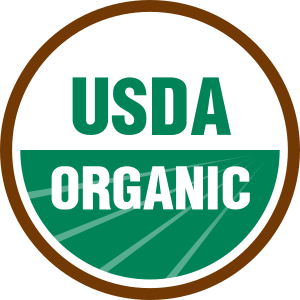Earlier this week, a journal on Internal Medicine released a review from Stanford University which concluded that there are no significant health or safety benefits of choosing organic over conventionally grown foods.
This is different from previous papers in that it is a review of recent, relevant studies, instead of a research study in itself. The group from Stanford looked at 237 studies analyzing the benefits and dangers of eating organic vs conventionally grown food products. What they found upset many proponents of organics who use health reasons for their choices.
Study on benefits of organic foods is misleading, consumer group argues – CBS News
Stanford Scientists Cast Doubt on Advantages of Organic Meat and Produce – New York Times
Study Says Organic Isn’t Healthier? Here’s Why It Still May Be Worth The Cost – Forbes
I won’t muddle through the details of the review or debate the details. This is only one paper covering a very complex topic, but I think it is important to share and learn from. Here is a link to the actual article, released September 4, if you care to read.
The Stanford School of Medicine released a summary article on the findings. Here is the link to that page. I think this is well worth taking the time to read.
[The] comprehensive meta-analysis of existing studies comparing organic and conventional foods did not find strong evidence that organic foods are more nutritious or carry fewer health risks than conventional alternatives, though consumption of organic foods can reduce the risk of pesticide exposure.
“Our goal was to shed light on what the evidence is,” said Smith-Spangler. “This is information that people can use to make their own decisions based on their level of concern about pesticides, their budget and other considerations.”
“She also said that people should aim for healthier diets overall. She emphasized the importance of eating of fruits and vegetables, “however they are grown,” noting that most Americans don’t consume the recommended amount.”
“What I learned is there’s a lot of variation between farming practices,” said Smith-Spangler. “It appears there are a lot of different factors that are important in predicting nutritional quality and harms.”

Of course I think it’s very important to plan for yourself a healthy, balanced diet, mixed with adequate physical activity.
My friend Aimee, who is a mom in Wichita, KS, wrote a piece yesterday on her blog, Everyday Epistle, that does well to address the issue of how we define Organics.
Access to food choices, including Organics, should not be taken for granted. The value of production or integrity of the farmer isn’t defined by one label or another. Know your farmer or connect with many of them across the globe through online resources. Learn what your food terms and classifications mean to better understand your food choices.

